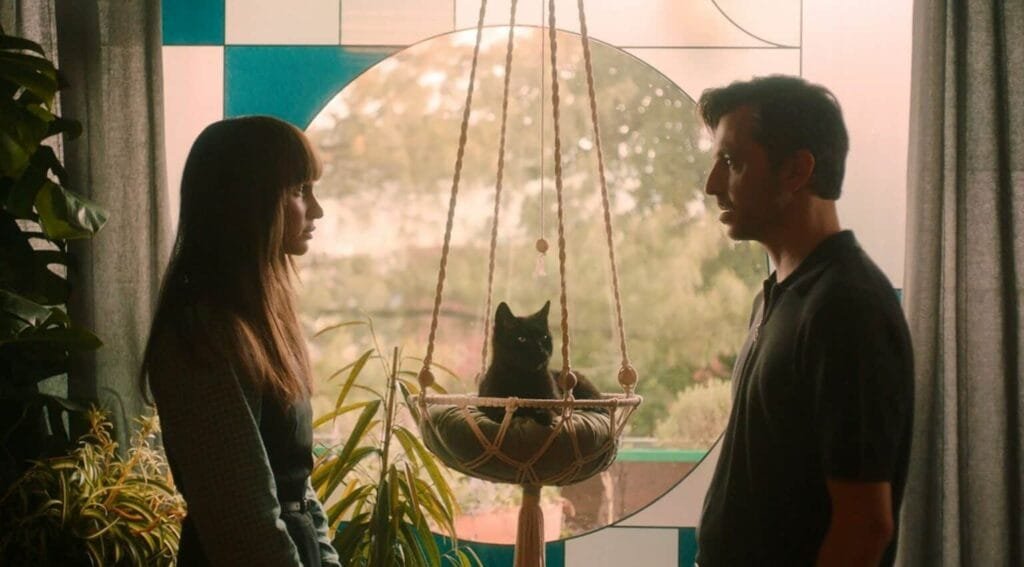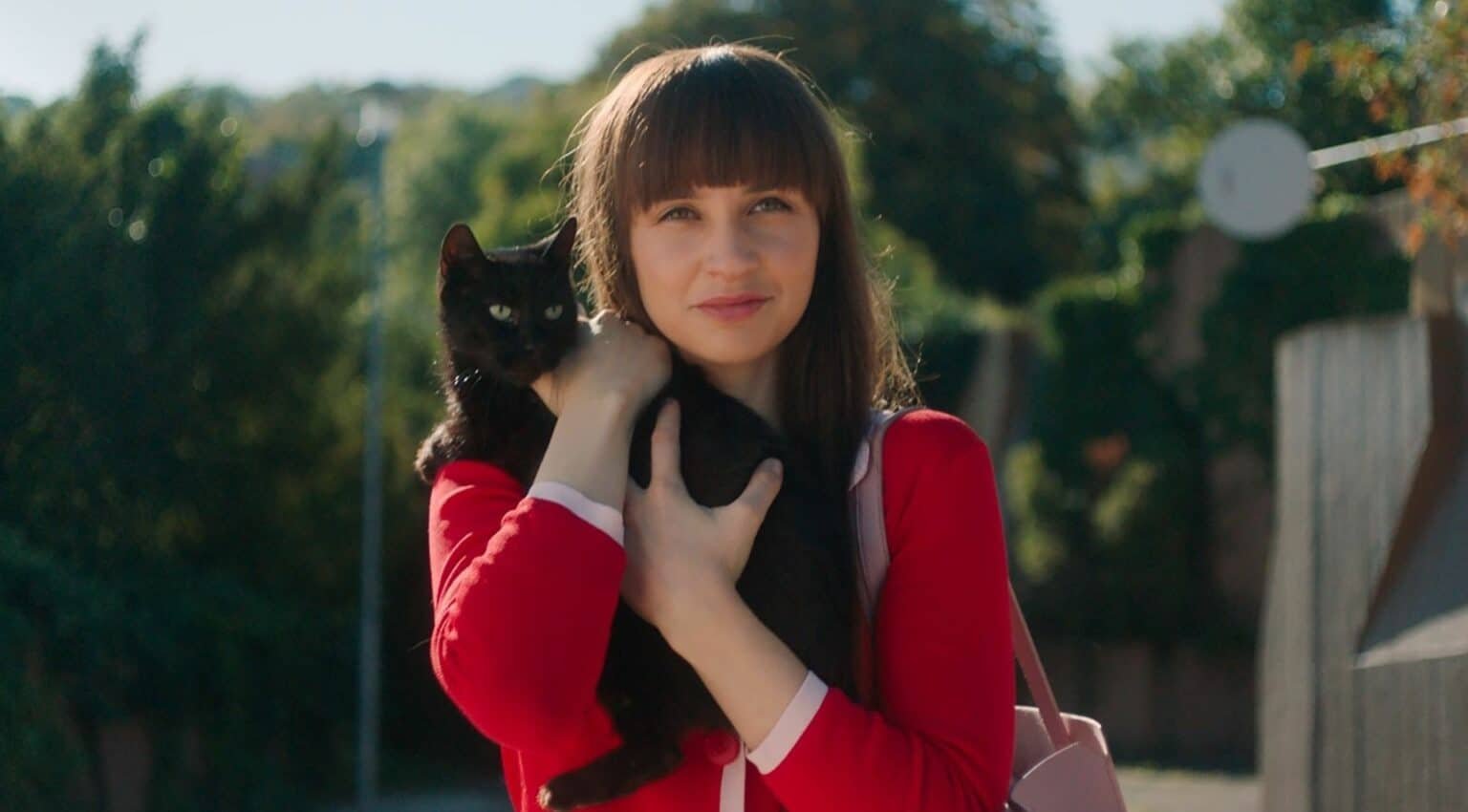
Cat Call (2023) is essentially a rom-com, though it starts by subverting a few expectations and – to do it justice – it sticks with this odd, if easy-going approach throughout. We’re introduced to our main character, a young woman called Fáni (Franciska Töröcsik) sauntering through – a cemetery. And yet, her laidback demeanour and the chipper accompanying music suggests a lightness of tone, despite the backdrop. The film sustains this lightness of tone throughout, so that when Fáni quite literally tumbles into the arms of a burly gravedigger a few moments later, even a certain revelation about her feels quite light. And what is this revelation? Oh, it’s just that Fáni fantasises about the grisly deaths of every guy she finds attractive; the gravedigger is just one in a long line. This is a problem. Equally a problem: today she turns thirty, and her family (who clearly know her well) have brought both a birthday cake and a birthday date to the cemetery, where she is hanging out at her father’s grave. They seem to make more of her age than her morbid affliction, quite honestly, which tells you a lot about cultural expectations around certain birthdays.
By trade, Fáni is an architect, but her workplace is presented as something of a boys’ club – so much so that, when a new employee joins the team, he’s immediately given a fist-bumping, dudebro welcome which Fáni finds quite disconcerting. The new guy is Mihály (Csaba Polgár) and of course they get tasked with working together; his presence triggers a ubiquitous death-vision, and if that wasn’t enough, it turns out he’s also going to be moving in to the apartment upstairs. Now, we have all the ingredients there for a perfectly fine romance, if that’s your thing, but there’s one more ingredient to follow, and it is by definition unexpected. As Mihály gets settled in, Fáni notices that he has brought a cat with him. This cat is unlike other cats, in that he instantly begins flirting with her. Yep, he can talk, and only she can hear him: first the death visions, and then a talking cat. What a way to see in your thirties.
They spend more time together when Mihály heads to Holland for a short excursion (this film is impressively pan-European, making mention of a fair few European destinations) and Fáni is tasked with cat-sitting. The human and the feline hit it off and we get to know each of them a little better, and in Fáni’s case the presence of deep-seated trauma which she needs to work through feels pretty self-evident (though to be fair, the cat’s desire to launch a career in gangster rap is less of a shoo-in).
Cat Call enjoys playing with the deep silliness of its central conceit, though it does so to gradually open up the character of Fáni, and it’s able to add in some humour as it goes. The talking cat motif, obviously, has its moments and the cat himself – given a sonorous, rather jaded personality which works – is an interesting addition. You have to hand it to Töröcsik and to…the cat, as they genuinely do seem to be acting together. That all being said, once this is established, the whole ‘she can hear him, no one else can’ shtick does get a little repetitive and the film begins to lag a little at the midway point: the gangster rap joke is extended as far as it possibly can be. It’s one of those things where less is more, or else, it’s at its most funny at first. In other respects, the trials and tribulations of a well-meaning, but floundering female feel very familiar; add in a few family issues, and a silly but still grounded Influencer friend to keep things current (Adél Csobot) and – Influencer thing aside – we’re somewhere between Ally McBeal and Sometimes I Think About Dying, especially given the growing importance of the workplace and colleagues to the unfolding plot.
Essentially, Cat Call has ‘quirky’ written through it, like Brighton rock: it’s an attractive film, colourful, a bit twee, with a running accompaniment of twinkly light-hearted music and an emphasis on the comic aspects of personal crises. It never allows itself to get particularly heavy, and just maybe its rather oblique treatment of some quite weighty themes won’t be for everyone. Still, and all in all, it’s a gentle sort of romantic farce, charming enough to sustain interest and with a gently dreamy style which is very visually appealing. It’s also a first-time feature from director Rozália Szeleczki, which promises good things.
Cat Call (2023) will screen as part of the Raindance Festival 2024 on 25th June. For more information, including tickets, please click here.
